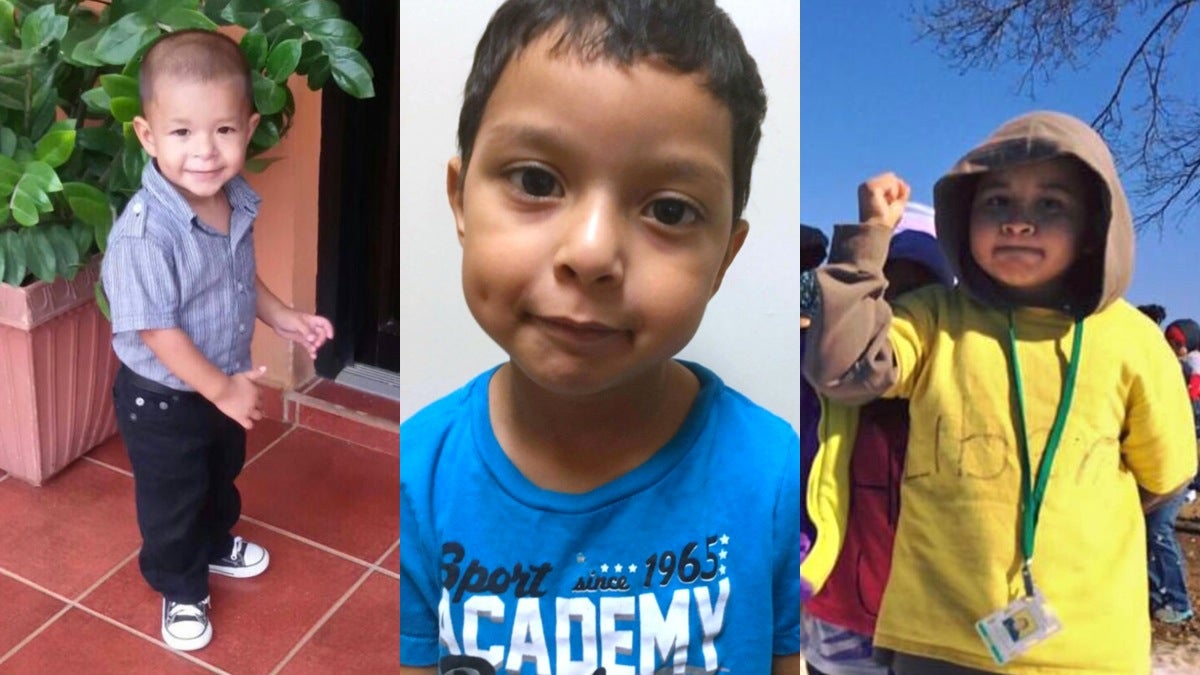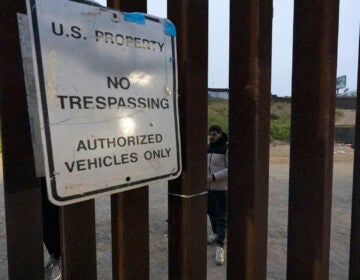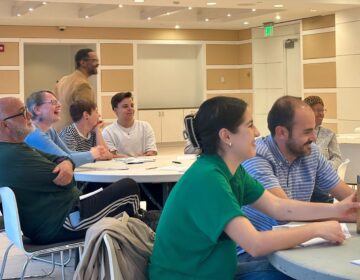Amnesty International uses Berks County immigrant cases to highlight prolonged detention
Listen
Pictured are three of four boys who have been held at the Berks County Residential Center with their mothers for more than a year and a half despite their status, which makes them eligible for permanent residency. (Photos provided by Amnesty International)
In Berks County in Pennsylvania, four children held in federal immigration detention for more than a year and a half have become the subject of protest petition by Amnesty International.
Antonio, Carlos, Josué and Michael — the pseudonyms the human rights group is using — are between three- and 16-years-old and have a pathway to permanent residency in the United States through what’s called Special Immigrant Juvenile Status.
“We wanted to push on these specific cases because there really is no reason for them to be detained pending a decision on their claims,” said Justin Mazzola, a researcher with Amnesty International in New York. The group’s public call to action involves circulating a form to help in calling and emailing Jennifer Ritchey, Acting Field Office Director for the Philadelphia Field Office, Immigration and Customs Enforcement.
The four boys fled gang violence in Central America with their mothers, who are also detained at the Berks Family Residential Center, about 70 miles northwest of Philadelphia. Like many of the 40-plus families held at the Berks County Residential Center, these mothers and sons filed for asylum after they were intercepted in the United States by Customs and Border Patrol.
Long stays in family immigration detention centers have a controversial history in the US. In 2015, a federal judge in California ruled the centers could hold children for no more than five days, barring extreme circumstances. Under President Barack Obama, the Department of Homeland Security called for the judge to reconsider her order.
Because most of the families at Berks have a final order of removal, which does not mean they do not have pending immigration cases, ICE has interpreted that ruling to mean they can be held longer in the Pennsylvania facility.
In some cases, families achieve a change in legal status while held at Berks, such as Special Immigrant Juvenile Status (SIJS).
Children who have been “abused, neglected or abandoned” by one or both parents and who a family court judge determines “it is not in [their] best interests” to return to their country of origin qualify for SIJS, as established in a 1990 federal law.
The status does not confer any benefit to the mothers, who have their own pending immigration claims. All four women are involved in an ongoing constitutional test case that has been appealed up to the U.S. Supreme Court. That body has not yet ordered on whether to hear it. Immigrations and Customs Enforcement officials declined to comment on specific cases.
In the meantime, 33-year-old Lorena — not her real name — said she doesn’t know what to tell her four-year-old son about when they can leave the center.
“Many days, he’s says, ‘Mom, let’s get out of here. I don’t want to be here,'” she said. “The answer to, ‘Let’s go’ is ‘I can’t give you an answer because I don’t know when we can leave.'”
So far, Amnesty International’s publicity campaign has led to more than 580 calls and 16,000 emails to ICE, according to Mazzola. His group sees the push as the first of many to come in response to President Donald Trump’s executive orders on immigration, which call for expanding immigrant detention.
“We’re concerned that a policy used by the Obama administration, using detention as deterrence, is going basically be exacerbated and expanded,” said Mazzola.
WHYY is your source for fact-based, in-depth journalism and information. As a nonprofit organization, we rely on financial support from readers like you. Please give today.




